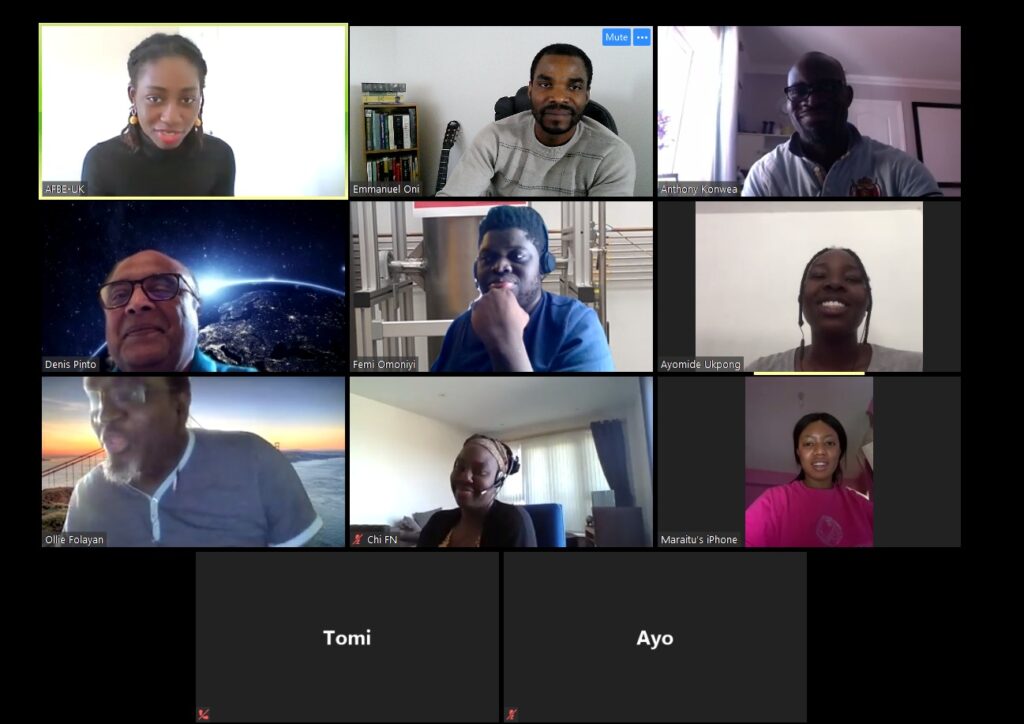Written by the Champions & Allies Group, of the Diversity & Inclusion Task Force
The first quarter of 2020 brought greater enthusiasm for diversity and inclusion. By contrast, the last ten weeks has seen an unparalleled change to our way of life as we have reacted to the threat posed to all by COVID-19. Closer to home, our industry is going through a further downturn imposed in part, by the impact of reduced oil demand on price.
This historic decline in demand coupled with a confluence of geopolitical factors, has already resulted in many people being furloughed, redundancies and projects being shelved. For the second time in six years, the energy sector is bracing itself for what threatens to be yet another challenging time, having just begun the road to recovery from the previous downturn.
Now, more than ever, people are looking to their leaders – who, in most cases, are now remote from them – for support and guidance. As these leaders are overloaded with the commodity price environment, cost-cutting and COVID 19, stimulating inclusive leadership is more important than ever. It is vital as champions and allies of diversity, that we use this opportunity to step up and support our colleagues.

Our leadership must think inclusively. Diversity should be the guiding principle for the decisions made in this uncertain period if we are to emerge from it unified and engaged. Inclusive leadership, therefore, has very practical implications for companies looking to reduce cost and ensure a smooth transition back to work after lockdown.
Tough Choices
- Leaders must explore ways to strike the right balance between cost efficiency and fairness. We need to apply the lessons we learned about dealing with unconscious bias. For instance, ensuring that redundancy decisions are made based on added value and not relative familiarity with the individual in the role; redundancy is about the role, not the person. Leaders should be mindful that our familiarity with team members may be based on non-work-related factors – such as those who socialise on a Friday evening – but these settings often exclude those with family commitments, certain religious beliefs or people with disabilities.
- As oil and gas resources become harder to reach and increased automation and the transition to a lower-carbon economy come to the fore of industry thinking, we need an innovative workforce. Diversity of thought is key to achieving this, ensuring our workforce comprises people from diverse backgrounds, genders, ethnicities and life experiences.
- Leaders should explore cost-cutting alternatives that minimise headcount culls such as sharing, reduced hours, part-time roles or voluntary redundancy.
Return to Work Post Lockdown
- Leaders must also apply this inclusive mindset to their company’s plans for returning employees to work. This will need leaders to think beyond the historical 9-5 mindset and be open to suggestions from their team. It will also require honesty from the teams, highlighting their concerns, with a preparedness from leaders to consider their suggestions. Diversity and inclusion must remain at the forefront of our thinking even in this context.
Team members will respond in various ways to a call to return to work, depending on their circumstances, whilst some may have health concerns regarding returning to an office, others may fear the consequence of not doing so – even if they are in at risk group. Employee engagement is therefore vital.

One way to achieve this is through discussion with the workforce. The inclusive leader would embrace the opinions of their team, for instance on how they should return to work. This will improve employee engagement, team performance and trust. Leaders should also consider the employee’s mental wellbeing or other protected characteristics when deciding whether, or how soon, they return to work. It is important that inclusive leaders contemplate the many issues that may prevent people from returning to work, such as increased susceptibility to COVID-19 and other complications, childcare, flexible working and having vulnerable people in the home. Effective dialogue with employees whilst working from home can be difficult for leaders and so different methods should be applied to engage, from virtual townhalls, employee surveys and employee forums to ‘tea and talk’ sessions. AFBE-UK recently ran a ‘tea and talk’ session which proved a successful and engaging format for those involved.
As a general guide, it is worth taking note of published statistics about particularly vulnerable groups when assessing an individual’s fitness to return to work. A recent report by the Institute of Fiscal Studies shows that the death rate among British black Africans and British Asians from coronavirus in English hospitals is more than 2.5 times that of the white population[1].The World Health Organization (WHO) has reported that 63 percent of deaths related to COVID-19 in Europe have been among men. Whilst what lies behind each statistic is multifarious, a willingness by leaders to understand the fears and concerns of their staff will ensure that each employee feels genuinely included. The return on such an effort would be the trust and dedication of that employee.
In its 2019 ranking of the 100 Best Workplaces, organisational consultancy Great Place to Work – the global authority on workplace culture – surmised after studying approximately 2000 companies, that key metrics related to equity and inclusion not only drive stronger company innovation, but also predict whether companies will thrive or stumble during a recession. The survey also found that inclusive organisations enjoy more than three times the revenue growth of less inclusive peers.
By ensuring that we practice inclusive leadership in these difficult times, we will create a unified and engaged workforce that will contribute to our success on the challenging road ahead.
Dr Ollie Folayan is a member of the OGUK D&I Task Force which launched a Diversity and Inclusion Network on 28th May 2020. The Network is open to all employees in the oil, gas and energy industry and is an opportunity to ask questions, share experiences, provide support, collaborate and highlight best practise initiatives and campaigns. To request to join the network, click here.
[1]At the time of writing no data have been published on the impact of coronavirus on ethnic groups in Scotland